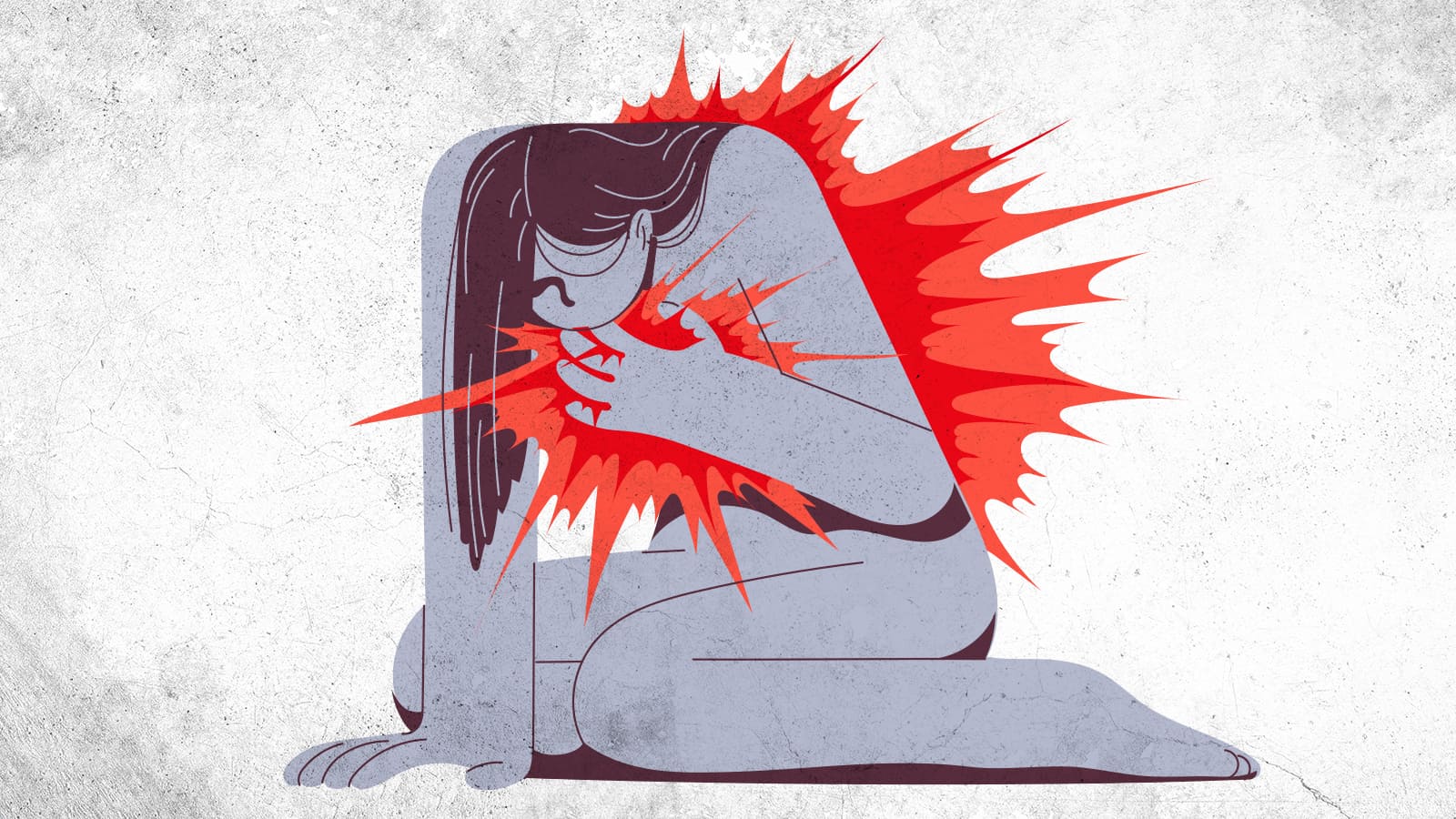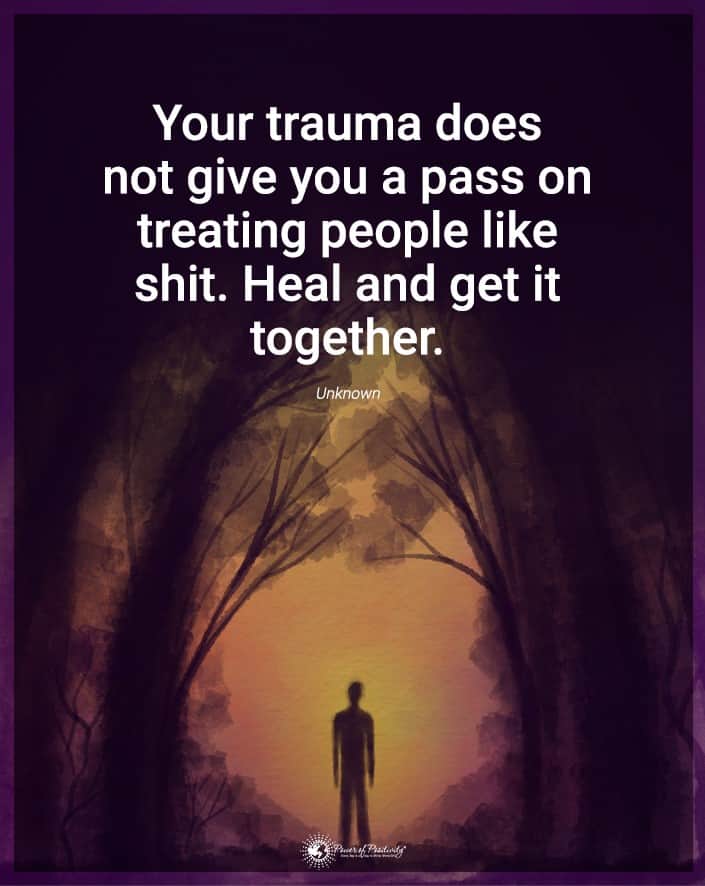Since humans are emotional beings, overacting occasionally is not abnormal. For the most part, you may be level-headed and try to get all your facts straight. However, if you’re emotionally reactive, you often dramatize events and face the ever-mounting consequences.
Emotional reactivity is an overaction of emotion that’s out of proportion. When the situation is emotionally charged, the person’s perception changes. They can’t focus and see what’s happening or comprehend what’s being said, as they hear and see things with a skewed perception.
Have you ever been around someone you considered “high strung?” Other common adjectives that describe this person are overly sensitive or too emotional. It’s a common misconception that these folks are disorganized and unsuccessful.
Emotional reactivity affects people from all walks of life. Such behavior doesn’t have socioeconomic boundaries. These folks that tend to overreact can be family, friends, coworkers, or you may be one yourself.
How Can You Tell if You’re Emotionally Reactive?
You may have emotional overreactions if you tend to react to almost everything. You may brush it off as being sensitive or having a bad temper. Here are seven common behaviors that people with emotional reactivity display.
1. The Most Innocent Comments Offend Emotionally Reactive People
Have your family or friends ever told you you had “thin skin?” They are telling you in a friendly way that you are emotionally reactive. You may often take comments the wrong way and be offended and resentful.
Let’s say you and some coworkers are on a coffee break, and someone sees you using lots of sugar. They say lightheartedly that the extra sugar will make you sweeter. You’re instantly upset with them for insinuating that you have a sour disposition, but this is not how they meant it to come across.
2. You Often Overreact to Various Situations
Emotionally reactive people often can’t differentiate between severe problems and trivial matters. Maybe everything is a big deal for you, and you’ll overreact accordingly. In your mind, there’s no difference between a firecracker and a hydrogen bomb.
Such a mindset usually makes you assume the worst-case scenario. Your emotions may go haywire when you hear a little noise in your car. You’re sure the whole motor will go out and it’ll cost thousands of dollars to replace.
3. Others Don’t Feel Comfortable Around Emotionally Reactive People
Spending time around an emotionally reactive person is like tiptoeing through a field of landmines. Your friends and family virtually walk on eggshells to keep from offending you. It makes for an emotionally strained conversation that nobody is enjoying.
Plus, your emotional volatility often creates negative energy. Pessimism can affect everyone in a group. It’s something for you to consider when you notice that your circle of friends is getting smaller by the day.
4. You Get Angry and Indignant When Things Don’t Go Your Way
Younger children are notorious for having emotional outbursts when they don’t get what they want. There’s nothing like being in a crowded line in the grocery store, and your toddler is having a tantrum over a small plastic toy. You quickly give in and throw it in the cart to save yourself more embarrassment.
Department stores depend on these emotional outbursts for optimal sales. That’s why they fill the checkout lanes with shiny things at children’s eye level. No wonder they call these overpriced goodies “impulse buys.”
Children often overreact because their emotional responses haven’t matured. Unfortunately, some children grow into adults and still have such outbursts. If you’re emotionally reactive, you’re prone to adult temper tantrums when things don’t go as planned.
5. You Allow Circumstances to Control Your Reactions and Don’t Take Responsibility
The life of an emotionally reactive person can feel exhausting and out of control. Instead of taking charge of your life and emotions, you’re in a perpetual reaction cycle. This mindset often makes you feel like you’re driving speedily in a car without a steering wheel.
It’s easy to shift the blame when you feel like you’ve lost control of your life. You may believe that circumstances are always against you. If you lose your temper, it’s not your fault because someone made you do it.
Blame shifting is often a trait of a toxic personality. It often leads to hostility and abuse toward others, especially those closest to you. It’s a situation that can quickly destroy personal and professional relationships.
6. The Least Provocation Can Send An Emotionally Reactive Person into a Blind Rage
Have you ever been told that your temper is like a short fuse? The least little spark can cause an emotional explosion. Volatile rage is often a precursor to abuse that can turn lethal.
If you have these tendencies, others never know which version of you they’ll get. You may be happily chatting one moment, and the next minute, you’re a raging grizzly. Afterward, you may return to the merry conversationalist as if nothing had happened.
Such behavior can also lead to resentment and holding grudges. You may feel that your temper flare was justified. It can also cause you to feel paranoid and angry at the whole world.
7. You Often Hear What You Want to Hear
Emotionally reactive folks aren’t known for their excellent listening skills. You may hear what the other person’s saying, but you’re not listening. Instead, you interrupt and are preoccupied with what you want to say next.
Misunderstandings are inevitable since you haven’t listened to and thought about the other person’s statements. You may overreact and create an emotional tsunami over something you only assumed or misunderstood. Excellent communication is the backbone of solid relationships; poor communication will destroy them.

How to Reduce the Chances of Being Emotionally Reactive
The first step to ending the cycle of emotional reactivity is to admit that you have a problem. There’s no shame in such admission; it shows you’re ready for a change. Here are some suggestions to help you be less reactive.
1. Think First
One of the main reasons that people overreact is they speak or do things before they think. They’ve already had an emotional backlash after discovering it’s been a vast misunderstanding. Before you react, take a deep breath, don’t speak, and think for a few minutes.
2. Be an Active Listener
How many times have you blown your emotional fuses before knowing the facts? The best way to avoid misunderstandings and overreaction is to listen actively. It’s going beyond hearing the other person’s words and taking them to heart.
Active listening is a valuable skill that can help you in all your interpersonal relationships. Listen to what the other person is saying without interrupting or surmising. Think about what they’ve said and pause for a few seconds before you respond to them.
Try to keep neutral body language that doesn’t show impatience or underlying aggression. Do your best to mirror the speaker’s emotions and ask for clarification if you don’t understand something. Not only will you be a more effective communicator, but you can exert more control over your emotions.
3. Identify What Causes You to Be Emotionally Reactive
If you’ve overreacted to something, try to use it as a learning experience. What were the circumstances that caused you to go into an emotional tailspin? Was it a conversation or possibly a person who often gets on your nerves?
These are called triggers because they “trigger” your emotional outbursts. Once you know your triggers, you’ll better control your emotions. The next time you feel like you’re going to overreact, realize these are just triggers and avoid falling victim to them.
4. Consider Emotional Outlets
Frequently people overreact because they have so much emotion bottled up in their minds. Instead of letting your emotions control you, discover ways to redirect them. Dealing with your feelings can help diffuse your in an emotionally charged conversation or situation.
Meditation is an excellent way to learn how to control your breathing and calm your mind. You know how to acknowledge your thoughts compassionately and let them go. All you need is a quiet space and about twenty minutes to relax, breathe, and be present.
Journaling is another essential tool for personal introspection. It’s a line of communication between you and your inner voice. It also provides thoughts for reflection and dealing with your feelings and what caused them.
You can also consider any creative outlet that you enjoy. It can be art, music, literature, or any fun hobby. If you don’t have a hobby, there’s no better time than now to learn one. Hobbies help you relax so your nerves and emotions aren’t tense.

Final Thoughts on Behaviors Emotionally Reactive People Display
Being in control of your emotions is a work in progress. You’re human, and everybody has their overly emotional moments. Your feelings can be more balanced when you understand triggers and some underlying causes of your overreaction.






















